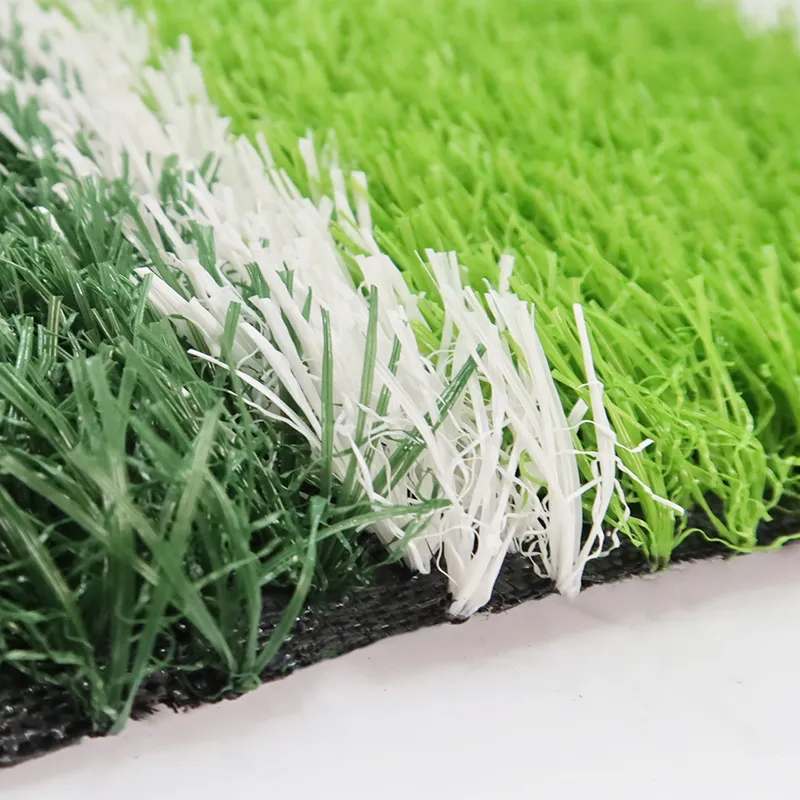
- Afrikaans
- Arabic
- Belarusian
- Bengali
- Czech
- Danish
- Dutch
- English
- Esperanto
- Estonian
- Finnish
- French
- German
- Greek
- Hindi
- Hungarian
- Icelandic
- Indonesian
- irish
- Italian
- Japanese
- kazakh
- Rwandese
- Korean
- Kyrgyz
- Lao
- Latin
- Latvian
- Malay
- Mongolian
- Myanmar
- Norwegian
- Persian
- Polish
- Portuguese
- Romanian
- Russian
- Serbian
- Spanish
- Swedish
- Tagalog
- Tajik
- Thai
- Turkish
- Turkmen
- Ukrainian
- Urdu
- Uighur
- Uzbek
- Vietnamese
Understanding the Costs of Synthetic Turf Grass for Your Landscaping Needs
Dec . 11, 2024 10:06 Back to list
Understanding the Cost of Fake Turf Grass A Comprehensive Overview
In recent years, the popularity of fake turf grass, also known as artificial grass or synthetic turf, has surged. Homeowners, landscape architects, and sports facilities alike have turned to this innovative solution for a variety of reasons, including aesthetic appeal, environmental benefits, and low maintenance. However, one of the most pressing considerations when deciding to install fake turf is its price. This article will delve into the factors influencing the cost of fake turf grass, providing insight for potential buyers.
Factors Affecting the Price of Fake Turf
1. Quality and Type of Turf The price of fake turf varies significantly based on its quality and type. High-quality synthetic grass often mimics the look and feel of natural grass closely, using advanced technologies and materials. Different types include durable turf suitable for sports fields, softer turf ideal for residential lawns, and specialized varieties for pets. Typically, higher-quality turf comes with a higher price tag but also offers better durability and longevity.
2. Material Composition The materials used in manufacturing synthetic grass significantly affect its price. Most fake turf is made from polyethylene, polypropylene, or nylon. Polyethylene is commonly used for residential applications, as it is soft and aesthetically pleasing. Nylon, on the other hand, is more resilient and is often used for high-traffic areas or sports fields. The choice of material can impact not only the price but also the performance and lifespan of the turf.
3. Installation Costs Installation is a crucial component of the overall expense of fake turf grass. While some homeowners consider DIY installation to save costs, professional installation ensures that the turf is laid correctly, which is essential for maximizing its lifespan and effectiveness. The complexity of the installation process can vary based on the area’s size, shape, and existing landscaping. On average, professional installation can add $5 to $10 per square foot to the total cost.
4. Size of the Area The size of the area to be covered is another key factor in determining the overall price. Larger areas typically benefit from economies of scale, as bulk purchases of turf and materials can reduce costs per square foot. However, for smaller spaces, the cost can be disproportionately higher due to fixed installation costs.
fake turf grass price

5. Additional Features Many manufacturers offer a range of optional features that can enhance the performance and appearance of fake turf grass. For instance, additional padding can provide extra cushioning for playgrounds or sports fields, while infill materials can help the grass blades stand upright and improve drainage. These additional features can add to the overall price but may be worth considering depending on the intended use of the turf.
6. Maintenance and Longevity Although initial costs for fake turf can be significant, it’s essential to consider long-term savings. Unlike natural grass, synthetic turf requires minimal maintenance—no mowing, watering, or fertilizing. This can lead to substantial savings on water bills and landscaping services over time. Additionally, quality synthetic grass can last anywhere from 15 to 25 years, making it a sound investment in the long run.
Budgeting for Fake Turf Grass
When budgeting for fake turf grass, homeowners should consider both the upfront and long-term costs. The average price of synthetic turf ranges from $2 to $8 per square foot, including installation. This means that for a standard 500 square foot lawn, the total cost could range between $1,000 and $4,000.
It’s advisable to obtain quotes from multiple suppliers and installers to ensure a competitive price. Additionally, researching local regulations regarding artificial turf can help avoid unexpected costs related to permits or landscaping guidelines.
Conclusion
The decision to invest in fake turf grass encompasses many factors, with price being a critical aspect. By understanding the various elements that influence the cost—including quality, material, installation, and maintenance—homeowners can make informed choices that align their budgets with their landscaping goals. While the initial investment may be higher than natural grass, the long-term benefits and savings make synthetic turf an appealing option for many. Ultimately, the choice will depend on personal preferences, lifestyle needs, and financial considerations, but fake turf grass remains a viable and attractive alternative to traditional landscaping.
-
The Benefits of Artificial Turf for Indoors
NewsJul.15,2025
-
How Artificial Grass Suppliers Ensure Quality Products
NewsJul.15,2025
-
Artificial Grass and Pets: A Space for Relaxation
NewsJul.08,2025
-
Balcony & Outdoor Decoration with Artificial Grass
NewsJul.08,2025
-
Best Indoor Artificial Grass for Home
NewsJul.07,2025
-
Best Pet Turf for Dogs: Safe & Durable Artificial Grass Options
NewsJul.07,2025
Products categories









